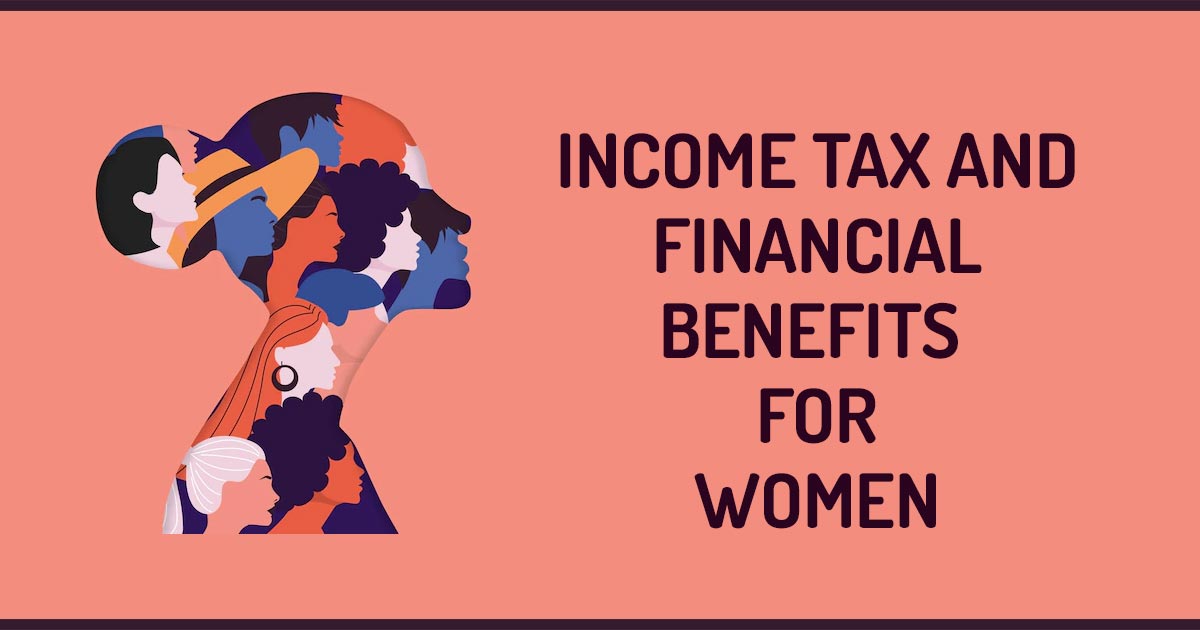
International Women’s Day (IWD) is observed every year on 8 March to celebrate all women’s cultural, political, and socio-economic achievements. A country still tackling female feticide in some areas, is seeing a female majority for the first time, which is indeed a great achievement towards a great, sustainable future.
However, apart from female feticide, there are still some issues women in our country face. It is observed that only a tiny percentage of women are employed in India, this is also one of the serious issues that need to be seriously considered.
At SAG Infotech, a taxation software provider, we would like to appreciate every girl’s journey to becoming a responsible woman, and what rights, income tax benefits, and other benefits are available in Indian laws for women.
Benefits Available to the Girl Child in India
Sukanya Samriddhi Yojana is a saving scheme backed by the Government of India, especially for daughters. This scheme encourages parents to create a fund for their daughter’s future education and expenses like marriage. Investment or saving in this scheme is eligible for deduction under section 80C and interest and withdrawals are also made tax-free. However, there are some eligibility criteria parents have to take care of:
If the Child is the Account Holder-
- This account can be opened only by a girl child
- The maximum age should be 10 years
For the Parents –
- Only the biological parents or the legal guardian of the girl child are allowed to open an account in this saving scheme on behalf of the child
- A parent or legal guardian can open a maximum of two accounts for their child. In the case of twins or triplets, a maximum of three accounts can be opened
Rights & Tax Benefits Available to Women on or After Their Marriage
The Supreme Court of India kept it very clear that all Hindu women have equivalent rights over their father’s property from 1956, When was the succession law first codified. Daughters now share the same rights as sons in Hindu ancestral property. A woman also has rights equal to her children on the property of her husband.
Hindu Law mentions the term “Stridhan”, which is for everything a woman receives as a Gift during her lifetime. It can be any movable, immovable property gift, etc. received by a woman before marriage, at the time of marriage, during her birth, and when she is widowed. As per law, a woman is the absolute owner of all such property and belongings (Stridhan) and her relatives including her husband have no right to all of them.
Stridhan also mentions the gold-holding limit for married and unmarried women. According to it, married women can hold 500 grams of gold, and unmarried women can hold gold up to 250 grams. The mentioned limit cannot be ceased even during income tax raids.
Women also have the right to become the Karta of the HUF if the male member is absent. Additionally, women have the privilege of being the sole entrepreneur in a one-person company.
Women also have access to avail of special health insurance schemes dedicated to women to get the maximum benefits.
Financial Benefits Available to Women
The government has launched diverse incentives to encourage women’s entrepreneurship.
- Stand Up India: The scheme allows women entrepreneurs to apply for bank loans between Rs. 10 lakh and Rs. 1 crore for first-time business.
- Mudra Yojana: This scheme gives loans up to Rs. 10 lakh for women.
- Cent Kalyani Scheme: The scheme provides financial stability for women who manage small to medium enterprises situated in the agriculture sector or retail business. Loans up to Rs. 100 lakhs are sanctioned without the need for a guarantee. These loans are offered by the Central Bank of India.
- Benefits Under the Housing for All Program: Under this, the property for which credit subsidy is provided under the Pradhan Mantri Awas Yojana (PMAY) scheme needs to be in the woman’s name, or the woman should be a co-owner.








